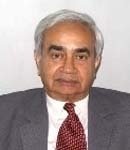South Asian Dialectic
The Enigmatic Case of Bowe Bergdahl
16 Jun, 2014 · 4511
Prof PR Chari looks at the lessons to be learnt from this episode that have universal applicability
Sgt Bowe Bergdahl was serving with the US Army in Afghanistan’s Paktika province when he was captured on 30 June 2009 by the Taliban’s Haqqani faction. After protracted negotiations, Bergdahl was released on 31 May 2014 in a deal brokered with the Taliban by the governments of the US, Afghanistan and Qatar. In terms of this deal, five Taliban detainees, currently incarcerated in Guantanamo Bay (Cuba), were transferred to Qatari custody for one year, after which they would be free to go wherever they wished. Bergdahl was treated after his release at a Regional Medical Centre in Germany, and has now been transferred to a medical facility in Texas for further physical and psychological treatment. Incidentally, the five Taliban detainees exchanged to secure Bergdahl’s liberty include the former Taliban army chief of staff, a Taliban deputy minister of intelligence, a former Taliban interior minister, and two other senior Taliban figures. Eyebrows have been raised in the US political and military establishments, especially among Republicans and conservative Democrats, apart from the veterans’ community, over whether too high a price has been paid to secure Bergdahl’s release. These hardened terrorists, their argument goes, are bound to return to active duty, and complicate the on-going war on terror by the US.
President Obama, who took the decision to proceed with this exchange, has justified it on humanitarian grounds, citing the American tradition of not leaving anyone behind on the battlefield. A further wrinkle was added because the prior approval of Congress had not been sought before the release of the Guantanamo Bay detainees, which is a procedural and statutory necessity under American law. But the Obama administration has justified its bypassing of Congress by claiming that the window of opportunity to obtain Bergdahl’s release was limited and dilatory procedures could have endangered his life. There is also the legal argument that the Presidential system of governance in the US gives absolute discretion to the Chief Executive to take appropriate decisions in matters involving the supreme national interests. Detractors, however, have found these justificatory arguments unconvincing, if not glib.
Some versions of Berghdahl’s capture have also become controversial. He had confessed to being captured when he fell behind on a patrol. The Taliban alleged that Bergdahl was ambushed after he got drunk off base. Other sources said that Berghdahl walked off the base after his shift. The US Defense Department had attributed his disappearance to his walking off his base with three Afghans when he was taken prisoner. Critics allege that Bergdahl was a deserter, and swapping him for notorious Taliban leaders was most unwise, especially since general American policy eschews bargaining with militants for freeing hostages.
Why then did President Obama - an intensely political leader - undertake this manoeuvre? Obviously, he wanted to bolster his sagging political image, which has been severely dented in the recent past. Clearly, the American economy is showing no signs of recovery, unemployment has reached historical heights, and the Obamacare health programme is going nowhere. Furthermore, foreign policy disasters centering on Ukraine, Syria and, now, Iraq are staring Obama in the face. He might have calculated that securing the release of Bowe Bergdahl would deflect attention from these depressing realities. Unfortunately, this affair became hugely controversial and divisive. Apropos, the latest Obama public approval ratings have dropped to an all-time low of 44 per cent.
What are the lessons to be learnt from this episode that have universal applicability? No doubt, domestic political realities like the strength of the government, importance of the hostage, or even their numbers are relevant considerations for deciding on how to deal with hostage crises. But, the most obvious lesson to be learnt is that nations should have a hostage policy. Should they negotiate with abductors and hijackers to secure the release of citizens? Or, pursue a firm policy of not dealing with abductors and hijackers? The worst policy would, of course, be to have a hostage policy and make exceptions when crises arise, which is the choice preferred by President Obama.
India’s experience is instructive here. The abduction of the Sukma Collector in Chattisgarh in 2012 by Naxalites led to a high-level official team of interlocutors being set up; it negotiated his release after 12 days in captivity. No Naxalites, it seems, were released in return. But a high-level review of all pending cases was promised and the release of all arrested Naxal suspects against whom no specific charges had been levelled. The Chief Minister had made an impassioned plea at that time requesting a national hostage policy being devised for the guidance of the states. That policy has not yet been drafted, and the states remain adrift on how to handle such hostage cases if they occur in future.
Perhaps the Modi government, which has emphasised governance, should devise a hostage policy before the next crisis occurs. Even deciding on not having a policy and proceeding in an ad hoc fashion requires a policy decision.


